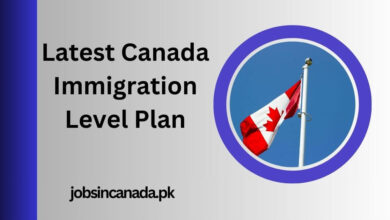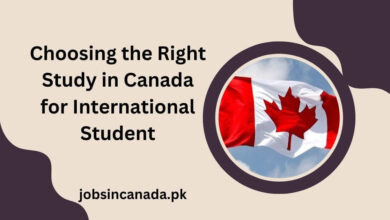Do and Don’ts for International Students in Canada 2025

There is a growing trend among students worldwide to pursue their education in other countries. The reputation of Canada is a significant factor in the decision of many international students to pursue their higher education. They are afforded the chance to engage with individuals from all corners of the globe, acquire a degree that is highly regarded by prominent businesses, and embark on a life-changing journey.
If you are among the numerous individuals who have expressed a desire to pursue higher education in Canada, we have compiled a list of activities that you should and should not engage in during your time studying abroad in Canada.
The subsequent is a Checklist of Tasks that International Students in Canada Should and Should Not Perform.
What International Students in Canada Should Do
1. You should Work Part-time
The government of Canada permits students to work part-time; however, the number of hours they can work each week is restricted to a maximum of 20 hours. There is a possibility that this action could assist you in saving money while you are studying in Canada. Students from other countries have access to a plethora of opportunities due to the extensive job market. Consequently, to accommodate your living expenses and pursue your education, it is advisable to obtain a part-time job.
2. Conduct appropriate research in preparation for the Courses offered in Canada
Canadian universities offer a wide range of high-quality educational opportunities to international students. Select the courses that are most pertinent to your pursuits and the objectives you aspire to achieve in your professional life. Additionally, determine whether you satisfy the prerequisites and eligibility criteria for the courses to determine whether you are eligible to enroll. This decision is influenced by a variety of factors, such as the availability of research facilities, prospective employment opportunities in the future, and, most importantly, top-ranked universities in Canada. For additional information regarding the most employable courses in Canada for students from other countries, consult this article:
3. Maintain an active social life
This is the most pleasant aspect of my time in Canada. You must engage in more social activities and establish connections with new individuals. What methods can I employ to achieve this? Participating in a diverse array of educational and social activities is one of the most effective methods for expanding one’s knowledge. Friendships that you establish during your time studying in Canada are likely to endure for the duration of your life. As you adapt to your new life together, you will discover that you naturally develop strong relationships with your fellow students. Maintain communication with them, as they may be able to provide you with support in your professional pursuits.
4. Explore your new environment, and be open to new experiences.
The likelihood of acquiring new travel experiences is one of the most rewarding aspects of relocating to a different nation to pursue academic objectives. In Canada, there are numerous opportunities to explore the world around you, sample delectable new cuisine, and gain direct insight into the customs and lifestyles of other individuals. You have the option of visiting the Rocky Mountains, Banff National Park, Niagara Falls, Old Quebec City, Jasper National Park, Gros Morne National Park, and other national parks, among others. As a tourist, you will never have the chance to experience the unique travel opportunities that you will have while studying abroad in Canada.
5. Choose the appropriate Student accommodation
When studying in Canada, students from other countries have the opportunity to select from a diverse selection of accommodation options. Students in Canada have access to a diverse array of accommodation options, including shared apartments and on-campus residences. It will satisfy all of your needs. If you elect to pursue your education in Canada, you will have the chance to reside in a variety of communities, each of which possesses its allure. Consequently, it is important to exercise prudence when selecting a lodging option, as it may impact the quality of your time spent studying abroad. This may be beneficial to you: Housing Options for International Students in Canada
Check Also: Predeparture Checklist for Foreign Students Studying in Canada
Benefits for Do and Donts for International Students in Canada
- High-Quality Education: Some of the world’s most prestigious universities and colleges are located in Canada, and they provide a wide variety of programs. The University of Toronto, McGill University, and the University of British Columbia are globally recognized for their exceptional educational programs.
- Inclusion and Cultural Diversity: Canada is recognized for its multicultural society. A diverse cultural environment is fostered by students from around the globe. You will have the opportunity to engage with individuals from a variety of backgrounds and gain insight into diverse cultures.
- Work While Studying: International students are permitted to work part-time (up to 20 hours per week during academic sessions and full-time during vacations) on or off-campus without a work permit, provided that they satisfy the criteria established by Immigration, Refugees and Citizenship Canada (IRCC).
- Post-Graduation Work Permit (PGWP): International students are eligible to apply for a PGWP after concluding a program of at least 8 months at a designated learning institution. This permit enables them to work in Canada for a maximum of 3 years, contingent upon the duration of their study program.
- Routes to Permanent Residency: International students have the option of applying for permanent residency through various pathways, including the Canadian Experience Class (CEC) through Express Entry. The likelihood of obtaining permanent residency in Canada is augmented by Canadian work experience.
- High Quality of Life: Canada is consistently recognized as one of the most livable and secure nations in the globe. International students can experience a comfortable lifestyle by taking advantage of the high standard of living, public services, and exceptional healthcare.
- Recognition on a global scale: The global recognition of a Canadian degree, diploma, or certificate can improve your career prospects and employment opportunities on a global scale.
- Financial Assistance and Scholarships: International students have access to a variety of financial assistance options, scholarships, and bursaries. Merit-based or need-based awards are provided by certain universities and organizations to alleviate financial burdens.
What International Students in Canada shouldn’t do
1. Don’t be careless
Despite the fact that the statistics indicate that Canada is a safe and respectable location to reside, international students must still take certain precautions prior to attending school in the country. Do not allow your defense to drop. By registering your possessions with the Consulate, you can increase their protection. Additionally, the authorities may be contacted in the event of an emergency or criminal activity.
2. Don’t forget to grab international students’ scholarship opportunities
Indeed, you must take advantage of any scholarship for which you are eligible. To persuade students from other countries to study in Canada, the government and universities of Canada offer an abundance of scholarships. Ensure that you capitalize on the opportunity. This will help you reduce the overall cost of your education in Canada. Submit your application after determining the scholarship’s prerequisites. A comprehensive list of bursaries that are currently available can be accessed by clicking on the following link: Bursaries and awards are accessible to international students who are pursuing their education in Canada.
3. Don’t overlook the importance of the Documents
To complete your studies in a foreign country, there are a few essential items that you will need to have begun with the application for admission. These documents must be stored and meticulously maintained. Ensure that you do not neglect them in the country you consider your own. Please bring them with you to Canada so that we may finalize the required documentation. The following is a concise compilation of documents.
- Personal Identification Card
- passport
- birth certificate
- evidence of enrollment in your institution
- evidence of language proficiency (e.g., IELTS, TOEFL, PTE)
- Proof of completion of additional entrance exams, including the GMAT, ACT, and SAT, is required.
- previously earned degrees
- Accommodation reservation
4. Do not allow your financial planning to stress you out.
The majority of students who study abroad are on a limited budget, which can lead to stress when attempting to identify methods to save money. Nevertheless, you should not allow this to impede your ability to enjoy yourself and go out. It is acceptable to occasionally spend money in order to acquire new experiences. Therefore, go ahead and create some fantastic memories for yourself. The cost of studying in Canada is the source of additional information on the subject.
5. Don’t Expect the Same Comforts as Home
Canada offers its citizens all the necessary amenities to optimize their stay. Nevertheless, the objects and experiences you are used to in your country of origin may be significantly different. This is particularly accurate when traveling outside of one’s country of origin. It is conceivable that the absence of certain amenities and accommodations from your homeland may induce feelings of homesickness. However, do not allow this to intimidate you; instead, make every effort to modify your response to the circumstances. It will not be a true home until you have acclimated, which should occur within a few months at the most.
Conclusion
We earnestly trust that the following list of activities that you should and should not engage in while studying abroad in Canada will be beneficial to you. We trust that you will find your new life in Canada to be enjoyable and that everything will proceed without any complications. While you are there, enjoy yourself and create unforgettable memories that will remain with you for the duration of your life. If you are faced with a substantial obstacle, it is recommended that you contact the appropriate university officer to inquire about receiving guidance.
Fraquality Asked Question:
-
What are the do’s and don’ts in Canada?
Canada’s shake hands upon initial meeting and may hug closer friends/family. However, Canadians keep kissing reserved for family and their romantic partners. “Tipping culture” is very common in Canada. It is often considered rude of you to enjoy your service at a restaurant and choose not to tip.
-
What are the disadvantages for international students in Canada?
The advantages of high-quality education, cultural diversity, safety, and post-graduation prospects make Canada an attractive destination. However, students must also contend with financial pressures, weather, cultural adjustment, work limitations, language barriers, and visa regulations.
-
What are the new rules for international students in Canada in 2025?
Announced in January 2025 effective September 1, 2025, was a two-year cap placed on international student visas and admissions to Canada. IRCC has now announced a further reduction of the intake cap on foreign students for 2025, aiming for a further reduction of 10 percent from the 2025 target



